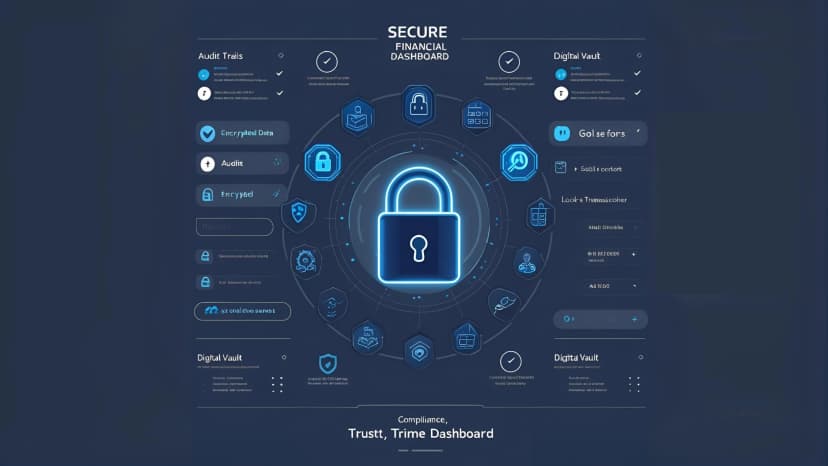Compliance in financial software testing makes sure that applications follow strict rules. These rules include GDPR, SOX, PCI-DSS, and RBI guidelines.
Key practices include understanding regulations, ensuring data privacy, maintaining audit trails, automating compliance checks, and working with QA experts. These steps protect businesses from fines, build customer trust, and keep software secure and audit-ready.
Introduction
Financial applications—from banking apps and stock trading platforms to insurance management systems—carry massive responsibility. Beyond functionality and user experience, they must meet strict compliance requirements. Any oversight in testing can result in data breaches, regulatory fines, or loss of customer trust.
For QA teams, software testing in the financial industry isn’t just about finding bugs—it’s about ensuring that every process aligns with complex regulatory frameworks. This blog explores essential compliance tips that help financial institutions stay secure, trustworthy, and regulation-ready.
Table of Contents
- Why Compliance Matters in Financial Software Testing
- Key Compliance Tips
- Common Compliance Challenges
- Best Practices for Compliance-Ready Testing
- FAQs
- Conclusion
Why Compliance Matters in Financial Software Testing
The financial industry operates under some of the strictest global regulations. With sensitive customer data, frequent transactions, and billions at stake, even small lapses can result in:
- Hefty fines from regulators like RBI, SEC, or EU authorities.
- Data breaches leading to reputational and financial damage.
- Operational disruptions during audits and inspections.
- Loss of customer trust in already competitive markets.
Compliance testing ensures that software is not only functional but legally defensible and secure. It’s a safeguard against both cyber threats and legal penalties.
Key Compliance Tips
1. Understand Regulations Clearly
Every region and product comes with different regulations. Financial QA teams must stay up-to-date with:
- GDPR (Europe) – Protecting customer data.
- SOX (USA) – Ensuring transparency in financial reporting.
- PCI-DSS (Global) – Safeguarding credit card and payment data.
- RBI Guidelines (India) – Ensuring banking apps meet local compliance.
📌 Tip: Maintain a compliance matrix mapping software features against relevant regulations. This prevents gaps in coverage.
2. Prioritize Data Privacy
Data privacy is not optional—it’s mandatory. Financial apps handle everything from account balances to card details.
- Encrypt sensitive data both at rest and in transit.
- Use anonymized test data instead of production data.
- Restrict access rights for QA environments.
At Testriq Security Testing, we test systems for vulnerabilities that could expose sensitive financial information, ensuring compliance with both global and regional privacy laws.
3. Maintain Audit Trails
Regulators often demand proof of compliance. QA teams must maintain:
- Logs of testing activities
- Documentation of approvals and changes
- Reports of compliance test results
This “compliance diary” becomes crucial during audits. With QA Documentation Services, we help teams set up clear, audit-ready records that minimize regulatory risk.
4. Automate Compliance Testing
Manual testing alone can’t keep up with the scale and repetition required in compliance. Automation helps by:
- Running compliance checks after every code change.
- Enforcing consistent encryption, validation, and access control rules.
- Detecting violations early in the development cycle.
Tools like Selenium, Appium, and custom compliance frameworks make automation an ally in staying audit-ready. Explore Testriq’s Automation Tools for more.
5. Work with Compliance Experts
Not every QA team has in-house compliance expertise. Partnering with specialists helps:
- Interpret evolving regulations.
- Design compliance-focused test cases.
- Conduct independent reviews and gap analysis.
At Testriq, our compliance-focused QA teams provide end-to-end support to financial organizations, from strategy to execution.
Common Compliance Challenges
Financial testing teams often face:
- Evolving Regulations – Keeping up with constant changes across countries.
- Data Sensitivity – Balancing realistic test data with privacy laws.
- Integration Complexity – Testing APIs across banks, wallets, and partners.
- Resource Constraints – Limited budgets for full-scale compliance testing.
These challenges require a proactive approach—waiting until audits arrive is too late.
Best Practices for Compliance-Ready Testing
- Map Requirements Early – Align features with regulations during design.
- Use Realistic Test Data Safely – Generate synthetic data for accuracy without privacy risks.
- Automate Where Possible – Integrate compliance into CI/CD pipelines.
- Keep Documentation Transparent – Regularly update compliance logs and audit reports.
- Train QA Teams – Build awareness of key regulations among testers.
FAQs
Q1: What is compliance testing in financial software?
A: It ensures software meets regulatory standards like GDPR, PCI-DSS, or RBI rules, protecting data and avoiding penalties.
Q2: How does compliance differ from functional testing?
A: Functional testing checks features; compliance testing checks legal and regulatory alignment.
Q3: Why is automation important in compliance testing?
A: It ensures consistent enforcement of rules and reduces human error.
Q4: What industries besides banking need compliance testing?
A: Insurance, stock trading, payment processors, and fintech platforms.
Q5: Can startups ignore compliance until later?
A: No. Non-compliance, even for small fintech startups, can result in severe penalties.
Conclusion
Compliance in financial software testing is about more than passing audits—it’s about building trust. By prioritizing regulations, protecting data, maintaining audit trails, and leveraging automation, financial institutions can deliver products that are both secure and legally compliant.
At Testriq, we help financial organizations navigate this maze with services in regression, security, documentation, and automation testing.
👉 Ready to strengthen your compliance strategy? Partner with Testriq and stay ahead of regulations.
About Atul Ahire
Expert in QA Testing with years of experience in software testing and quality assurance.
Found this article helpful?
Share it with your team!
